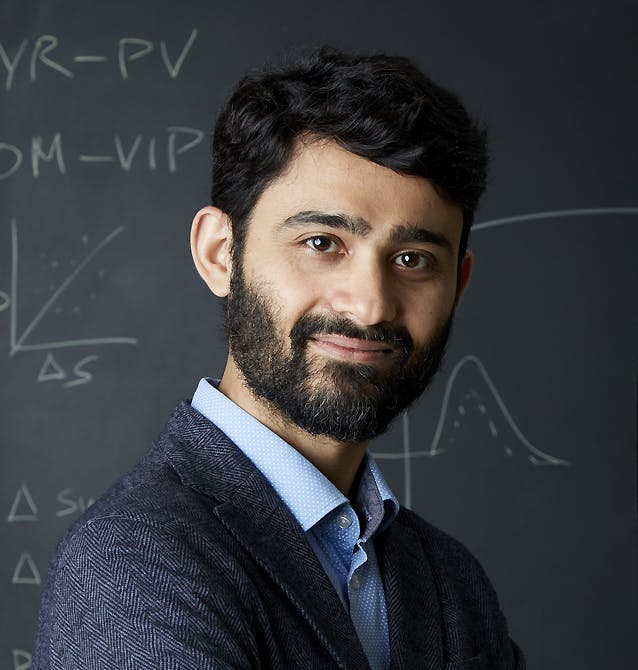

Neuroverse 3. A Podcast by Neuroverse: Reading and Writing Patterns in the Brain
About the episode
'Reading and writing patterns in the brain' is the third episode of the mini-series ‘Tools for looking into the brain.’ Your hosts Carolina and Clara are joined by neuroscientist Dr Adil Khan from King’s College London to discuss two-photon microscopy and optogenetic for studying the role of neuroactivity in behaviour and how the techniques are applied in his lab.
Two-photon microscopy enables deep tissue imaging, crucial for understanding complex brain structures. Optogenetics uses light-sensitive proteins to control cell activity, allowing precise manipulation of neural circuits.
About the guest
Adil Khan is a neuroscientist and group leader at King’s College London. He holds a bachelor’s in science in chemistry from the University of Delhi, and a PhD in neuroscience from the National Centre for Biological Sciences, Bangalore. He did his postdoctoral training in UCL, London as a Marie Curie Fellow and at the University of Basel as an Ambizione SNSF Scholar, before starting his own lab at King’s College London in 2018 as a Sir Henry Dale Fellow and Royal Society Research Fellow. His lab investigates the neural circuit basis of flexible cognitive behaviour.

Dr Adil Khan
The podcast series
In collaboration with Neuroverse, this podcast series, "Tools for Looking into the Brain," is dedicated to creating engaging and informative content exploring various techniques used by researchers in neuroscience. With a focus on electrophysiology, multiphoton imaging, and optogenetics. Throughout this series, we'll have special guest appearances, offering valuable insights and perspectives from experts in the field.
The hosts
Carolina and Clara are both neuroscientists and curious about the world and our perception of it. Their love for exploring ideas and bridging connections across various disciplines drew them to the interdisciplinary field of neuroscience. Together, they established Neuroverse as a platform for exploring and sharing ideas within and beyond neuroscience. Their goal is to create content that is accessible and engaging for both scientists and non-scientists alike.

Neuroverse hosts, Carolina and Clara





)